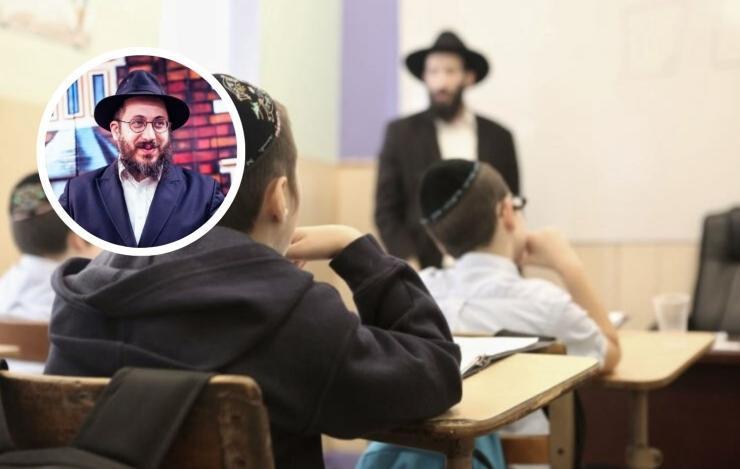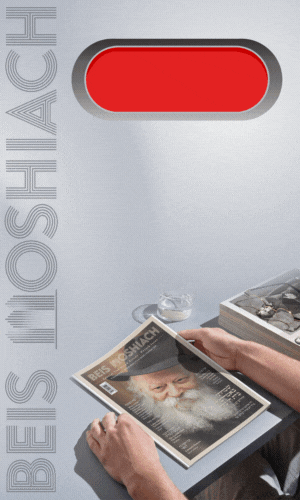Tzivos Hashem: Is An Army A Good Educational Model?
I am a frum person who is very supportive and appreciative to Chabad and my children participate in the Tzivos Hashem activities in our city. While the missions and competitions have given my children an enthusiasm in their Yiddishkeit, I have one inner reservation: Why would Chabad model itself on an army — which has violent connotation — as their education model for little children? Rabbi Gershon Avtzon writes in this week’s Chinuch and Moshiach column • Full Article
By Rabbi Gershon Avtzon
Question: I am a frum person who is very supportive and appreciative to Chabad and my children participate in the Tzivos Hashem activities in our city. While the missions and competitions have given my children an enthusiasm in their Yiddishkeit, I have one inner reservation: Why would Chabad model itself on an army — which has violent connotation — as their education model for little children?
Answer: Everything is b’hashgacha pratis; it is amazing that you bring up this important question during a year of Hakhel (5783), as the Tzivos Hashem institution was founded by the Rebbe in a Hakhel year (5741/1980).
Founding:
1 – The Rebbe introduced the idea during a talk delivered at a Sukkos children’s rally and then wrote the following letter to all children:
“In order to make this (involvement in Torah and Mitzvos) more successful and exciting, it is worthwhile to unite and join together in a group called “Tzivos Hashem, Hashem’s army”. This included every Jewish child, even youngsters. Hashem instructed them to “fill up the world and conquer it” — filling up the entire world and conquering it with the true light, that is to make sure that it is clear to all that the world belongs to Hashem.” (Igros, Vol. 33 p. 17; #11,355)
Why an Army Model?
In 5742 (1982), a Jewish educator wrote to the Rebbe a similar question to yours, challenging the usage of an army as a model for education. The Rebbe responded in an English letter on 26 Teves, 5742:
2 – “As an educator, you know that children need motivation, but that is only one aspect of the problem. The most important aspect, in my opinion, in this day and age, is the lack of Kabolas Ol [acceptance of the yoke], not only of Ol Malchus Shomayim [the yoke of the sovereignty of Heaven], but also general insubmission to authority, including the authority of parents at home and of teachers in school, and the authority of law and order in the street. There remains only the fear of punishment as a deterrent, but that fear has been reduced to a minimum because there has in recent years been what amounts to a breakdown of law enforcement, for reasons which need not be discussed here.”
“On the other hand, American children have been brought up on [in] the spirit of independence and freedom, and on the glorification of personal prowess and smartness. It has cultivated a sense of cockiness and self-assurance to the extent that one who is bent on mischief or anti-social activity feels that one can outsmart a cop on the beat, and even a judge on the bench; and, in any event, there is little to fear in the way of punishment.
“I Thought Long and Hard”
“As with every health problem, physical, mental or spiritual, the cure lies not in treating the symptoms, but in attacking the cause, although the former may sometimes be necessary for relief in acute cases. Since, as mentioned, the root of the problem is the lack of Kabolas Ol, I thought long and hard about finding a way of inducing an American child to get used to the idea of subordination to a higher authority, despite all the influence to the contrary—in the school, in the street, and even at home, where parents—not wishing to be bothered by their children—have all too often abdicated their authority, and left it to others to deal with truancy, juvenile delinquency, etc.
“I came to the conclusion that there was no other way than trying to effect a basic change in the nature, through a system of discipline and obedience to rules which she/he can be induced to get accustomed to. Moreover, for this method to be effective, it would be necessary that it should be freely and readily accepted without coercion.”
The Benefits of the Army
To the Rebbe, being involved in Tzivos Hashem was not just a benefit for the spirituality of the child, but also the physical health. This is evidenced by the story told over by Rabbi Yerachmiel Benjaminson, the executive director of Tzivos Hashem:
“I remember very vividly getting a phone call in the middle of the night from Rabbi Leibel Groner, the Rebbe’s secretary, telling me that a girl had been in a car accident and was in critical condition. And the Rebbe wanted her to be promoted to a higher rank in Tzivos Hashem than the one she held in order to help her get well more quickly. I went immediately to the office and found this child’s index card. (At the time, we had no computers so all the kids’ names were on index cards, and we had tens of thousands of index cards). I found it, promoted her from a private to a sergeant, and she had a full recovery.” (See Igros, Vol. 33 p. 182; #11,500)
Soldiers to March Out of Galus
The Rebbe further explained why — upon approval of Gedolei Yisrael — Jewish children were organized in army-like fashion especially I. This generation:
3 – “Our Sages declared, “When one comes to a city, one should follow its practices.”3 We find that in this country, there is a great emphasis placed on chinuch, “education.” Therefore, the positive dimensions of those educational practices should be followed and applied by Torah educators in the realm of holiness.”
“Jewish children are referred to with the name Tzivos Hashem [… and they also] are referred to as Mishichoi. In particular, this has a connection to those who study in Yeshivas Tomchei Temimim, for as the Rebbe Rashab explained, they are “soldiers of the House of David,” dedicated to bringing the Redemption.
“…The actual coming of the Redemption will be hastened by the activities of Jewish children who are called Mishichoi … the ultimate reason why children are referred to as Mishichoi is because Moshiach is their only concern. This is evident when looking at the children who were educated in the previous year and will surely be evident in the conduct of the children to be educated in the present year.” (Talk of Simchas Torah eve, 5752/1991)
The Moshiach Connection:
In the Hayom Yom (entry for 12 Nissan), the Rebbe writes about the concept of Yidden being called Tzivos Hashem and connects it to their steadfast faith in the Geulah:
“Ever since the time of the Exodus from Mitzrayim, the Jewish people have been called “Tzivos HaShem — G‑d’s army.” The Jewish people are also called servants. The difference between servants and an army can be explained as follows: A servant performs work for his master on various levels — one pierces pearls, one works in other crafts, another carries out unskilled tasks. These involve considerable labor and effort, but no element of self-sacrifice.
An army, by contrast, is composed of subjects who expend toil and exertion and self-sacrifice, whether in a defensive war or an offensive one. Soldiers discharge their duties with utter resoluteness, unperturbed by their opponents and enemies. Their service does not depend on understanding, for they follow the orders of their commanders.
In Mitzrayim, the souls of the Jewish people were on the lowest of levels, due to the harsh and bitter afflictions. Nevertheless, they did not change their names, language, or dress. On the contrary, they held their ground with the utmost tenacity, for they knew that Hashem had promised to redeem them. A person who conducts himself thus in a similar situation is a member of Hashem’s army. Hashem helps him in a way that transcends nature, but yet vested within nature.”
72
Join ChabadInfo's News Roundup and alerts for the HOTTEST Chabad news and updates!











































